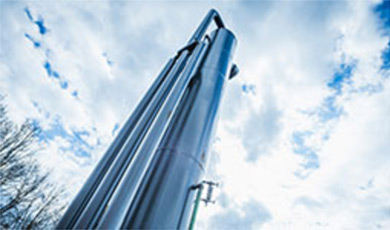Dec . 05, 2024 18:53 Back to list
Hydraulic Cylinder Solutions for Industrial Applications and Enhanced Performance
Understanding Hydraulic Cylinders A Key Component in Industrial Products
Hydraulic cylinders are indispensable components in various industrial applications, serving as the backbone of numerous machines and systems. With their ability to convert hydraulic energy into mechanical force, they play a crucial role in tasks ranging from lifting and pushing to precision movements in automated systems. In this article, we will explore the key features, applications, and advantages of hydraulic cylinders, shedding light on why they are vital in modern industry.
What is a Hydraulic Cylinder?
A hydraulic cylinder is a mechanical actuator that utilizes the pressure of a fluid to produce linear motion. The core component consists of a cylinder barrel, a piston, and a rod. When pressurized hydraulic fluid enters one side of the piston, it pushes the piston rod outward (or inward) depending on the flow direction, generating force that can be harnessed to move heavy loads or perform specific operations.
These cylinders are typically constructed from durable materials like steel or aluminum to withstand high pressure and environmental conditions, ensuring longevity and reliability in various applications.
Key Features of Hydraulic Cylinders
1. Force Generation Hydraulic cylinders are known for their ability to generate substantial amounts of force with relatively small input. This makes them ideal for heavy-duty applications where moving large loads is necessary.
2. Control and Precision With the right hydraulic system, these cylinders can offer exceptional control and precision. Operators can fine-tune the force and speed of the cylinder’s movements, making them suitable for tasks requiring meticulous accuracy.
3. Versatility Hydraulic cylinders come in various shapes and sizes, including single-acting and double-acting configurations. This versatility allows them to be used in diverse sectors such as construction, manufacturing, agricultural machinery, and more.
4. Durability Designed to withstand harsh operating conditions, hydraulic cylinders are often resistant to corrosion, wear, and tear. This durability ensures minimal downtime and lowers maintenance costs for industrial operations.
Applications of Hydraulic Cylinders in Industry
Hydraulic cylinders find a wide array of applications across multiple industries
hydraulic cylinder industrial products

- Construction In construction, hydraulic cylinders are pivotal in operating heavy machinery such as excavators, bulldozers, and cranes. For instance, they facilitate the lifting of heavy loads or earth moving operations with ease.
- Manufacturing In manufacturing processes, hydraulic cylinders are used in the operation of presses, conveyor systems, and metal forming machinery. They enable operations like stamping, molding, and cutting to be executed efficiently.
- Material Handling In warehouses and manufacturing facilities, hydraulic cylinders power equipment like forklifts and pallet jacks, providing essential support in moving and lifting goods.
- Automotive Industry Hydraulic systems are widespread in automotive applications, including assembly lines, where they control robotic arms for precise placement of components and materials.
Advantages of Using Hydraulic Cylinders
The use of hydraulic cylinders comes with several advantages that enhance operational efficiency and productivity
1. Power Density Hydraulic systems can deliver more power in a smaller and lighter footprint than pneumatic and electric systems, making them ideal for applications where space and weight are constraints.
2. Energy Efficiency When properly maintained, hydraulic systems can be highly efficient, with minimal energy loss compared to other mechanical systems.
3. Safety Hydraulic systems can effectively manage heavy loads, reducing the risk of accidents associated with manual lifting. Furthermore, these systems often feature safety mechanisms to prevent overload conditions.
4. Smooth Operation The hydraulic fluid lubricates the system, which not only provides smooth operation but also minimizes wear on components.
Conclusion
Hydraulic cylinders are a cornerstone of industrial machinery, offering power, precision, and versatility across numerous applications. As industries continue to evolve, the demand for advanced hydraulic systems will undoubtedly grow, driving further innovation in hydraulic cylinder technology. For businesses, investing in high-quality hydraulic cylinders translates to enhanced productivity, improved operational safety, and reduced operational costs. Understanding these robust components and their importance is essential for anyone involved in industrial operations.
-
Fork Lift Power Units - Hebei Shenghan | Efficiency, Reliability
NewsJul.13,2025
-
1.5-Ton Turbocharged Cylinder-Hebei Shenghan|Hydraulic Solution,Energy Efficiency
NewsJul.13,2025
-
Auto Hoist Power Units-Hebei Shenghan|Efficiency&Industrial Lifting
NewsJul.13,2025
-
Double Acting Power Units-Hebei Shenghan|Hydraulic Solutions,Industrial Efficiency
NewsJul.13,2025
-
1.5 Ton Lifting Cylinder 70/82-40-290-535 - High-Performance Hydraulic Solution | Hebei Shenghan
NewsJul.13,2025
-
Fork Lift Power Units - Hebei Shenghan | Efficiency&Reliability
NewsJul.13,2025
